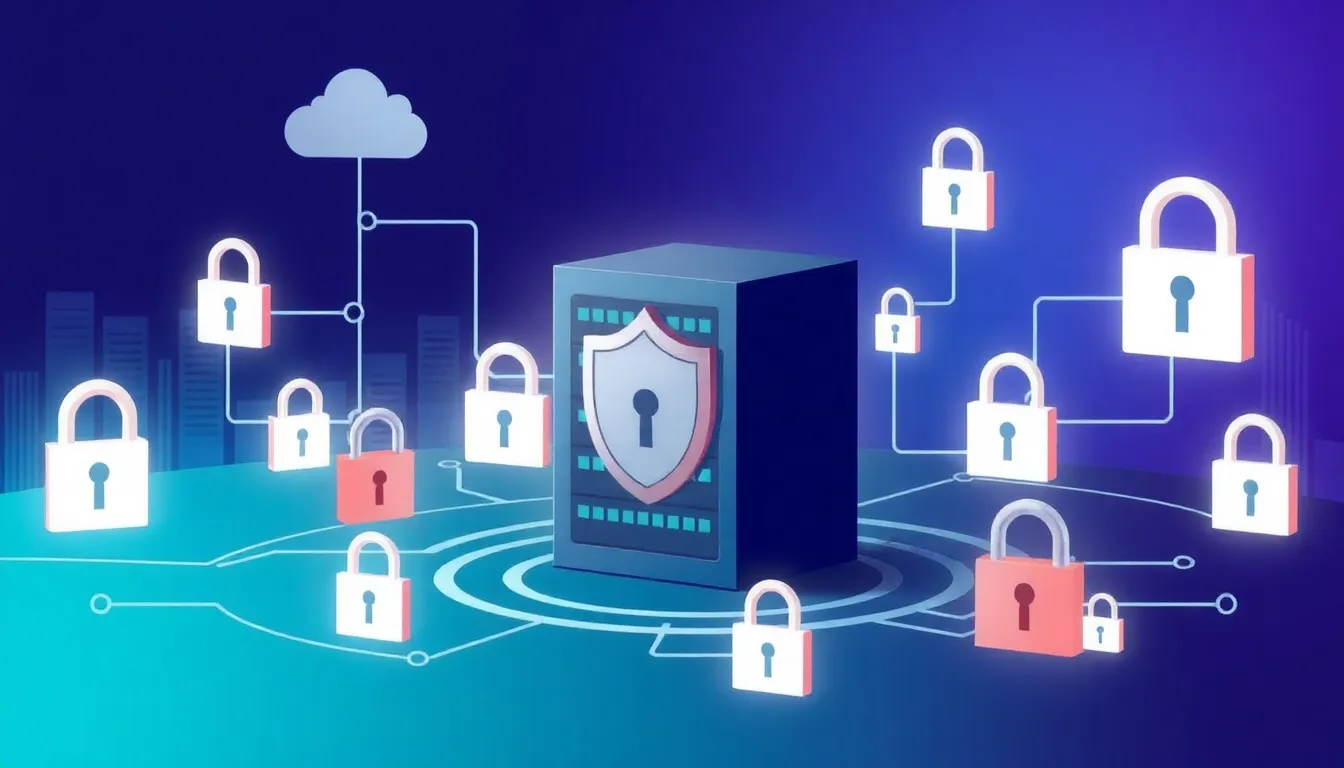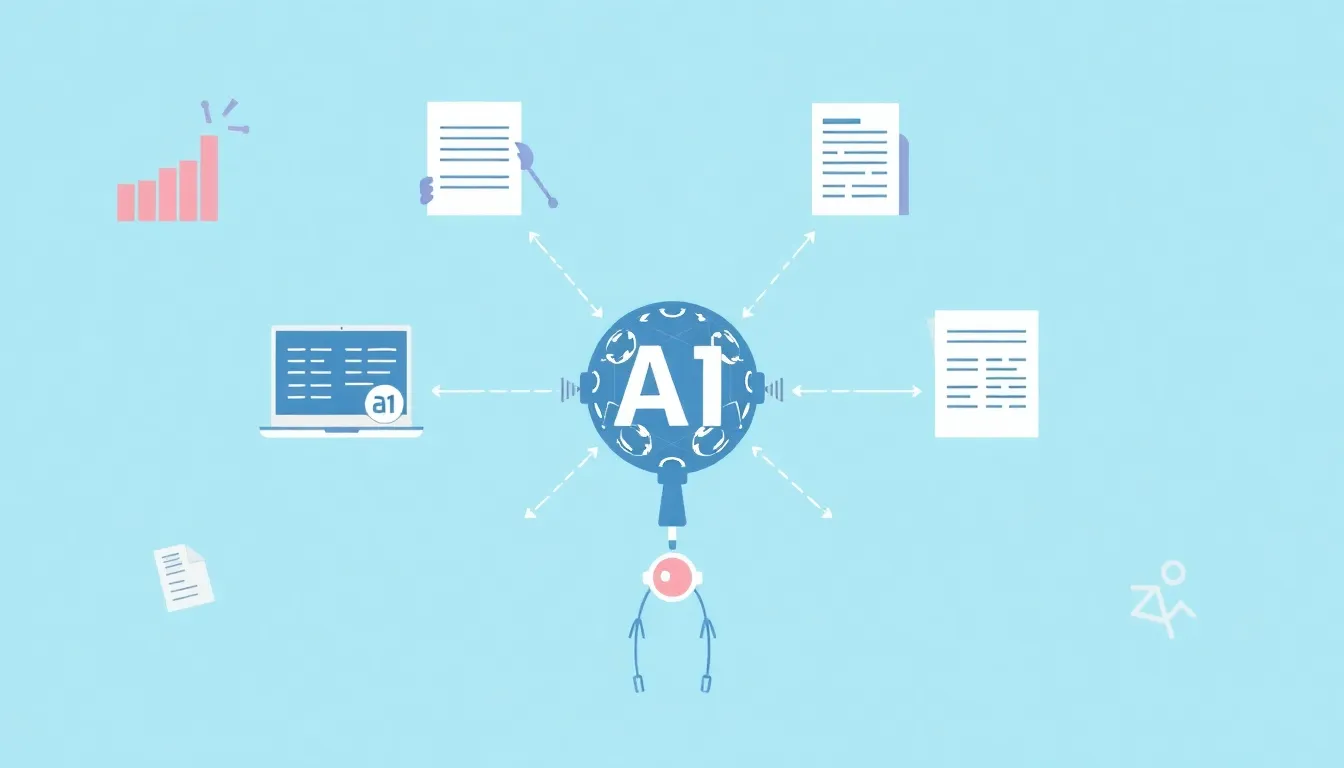In today’s digital landscape, where enterprise data is the lifeblood of informed decision-making, secure data management has never been more critical. With the exponential rise of cyber threats, organizations are compelled to protect their sensitive information from breaches and misuse.
Enter AI agent platforms like Cohere’s North, a transformative solution that not only fortifies security but also enhances operational efficiency. By enabling private deployments and seamless integration with existing tools, North empowers enterprises to manage data within the safety of their firewalls while ensuring compliance with stringent regulations.
As businesses increasingly rely on AI to drive insights and automation, the importance of secure data management cannot be overstated — it is a vital step towards fostering trust and leveraging technology to its fullest potential. Discover how Cohere’s North is redefining the standards for enterprise security in the evolving landscape of AI-driven solutions.
Data Security Challenges
In the evolving landscape of data security, enterprises face a myriad of challenges that threaten their data integrity and compliance. A comprehensive understanding of these challenges is crucial for organizations to mitigate risks effectively.
- Compliance Failures: Compliance with regulations such as GDPR and CCPA remains a significant challenge for many businesses. A study by FireMon highlighted that 60% of enterprise firewalls fail high-severity compliance checks, primarily due to outdated rules and misconfigurations. Non-compliance can lead to severe financial consequences, with non-compliant organizations facing average data breach costs of $5.05 million, which is about 12.6% higher than compliant ones.
- Human Error and Misconfigurations: Approximately 23% of data breaches in 2023 were attributed to human error, including misconfigurations and improper data handling. This indicates a critical need for regular training and governance to address these vulnerabilities, as human mistakes can significantly compromise security protocols.
- Evolving Cyber Threats: Cyber threats continue to grow in sophistication; ransomware attacks, for instance, have escalated with attackers implementing multi-faceted extortion methods. The increased volume and complexity of these attacks demand ongoing vigilance and proactive security measures from enterprises.
- Cloud Security Vulnerabilities: As organizations rapidly adopt cloud services, securing these environments has become increasingly challenging. Misconfigurations within cloud infrastructure can expose sensitive data, leading to potential breaches. A report shows many organizations struggle to monitor and secure their multi-cloud environments effectively.
- Supply Chain Attacks: The rise of supply chain attacks poses a significant risk as cybercriminals target third-party vendors to infiltrate larger networks. High-profile incidents, like the 2023 MOVEit data breach, exemplify the vulnerabilities associated with such attacks, necessitating a thorough evaluation of third-party security measures.
- SaaS Security Blind Spots: With the extensive adoption of SaaS applications, a lack of effective monitoring tools has resulted in security gaps. Organizations often find themselves blind to misconfigurations and potential breaches within these applications, leading to data exposure and security incidents.
- Skills Gap: The shortage of cybersecurity professionals continues to be a pressing issue, hampering enterprises’ abilities to respond effectively to increasing security threats. The skills gap complicates the implementation of security strategies and demands that organizations seek innovative solutions to enhance their cybersecurity posture.
Overall, addressing these challenges involves a multi-faceted approach, including adopting zero-trust security models, enhancing employee training, implementing comprehensive monitoring systems, and fostering collaboration across sectors to share threat intelligence. Without a proactive strategy, enterprises risk not only financial repercussions but also potential reputational damage as security threats continue to evolve.

Key Features of Cohere’s North
Cohere’s AI agent platform, North, emerges as a robust solution geared towards enhancing enterprise data security and operational efficiency. Here are some of its standout features:
- Private Deployment: One of the primary attributes of North is its capability for private deployments. This feature enables enterprises to maintain their data securely behind firewalls, significantly reducing the risk of external threats and unauthorized access to sensitive information. Organizations can control their environments and ensure that data privacy is prioritized.
- Compliance Standards: North adheres to critical compliance standards such as GDPR, SOC-2, and ISO 27001. These certifications indicate that the platform is designed with compliance in mind, making it suitable for organizations that must navigate strict regulatory environments. By meeting these standards, North assures enterprises that it can safely manage data in accordance with legal requirements, thereby mitigating potential legal risks associated with data mishandling.
- Integration Capabilities: The platform is engineered to seamlessly integrate with common workplace tools. This integration allows organizations to enhance their workflows without sacrificing data security. By connecting with existing tools, North fosters a more streamlined user experience that maximizes productivity while ensuring that sensitive data remains protected.
- Data Security Focus: At its core, North emphasizes data security. It employs advanced security measures that aim to keep enterprise information safe, allowing businesses to rely on AI technologies without compromising the integrity of their data. With increasing cyber threats, solutions like North are crucial for maintaining trust and confidentiality in enterprise operations.
Overall, Cohere’s AI agent platform, North, presents significant advantages for companies looking to secure their data while leveraging the efficiencies of AI. By prioritizing private deployment, compliance standards, and integration capabilities, North addresses the critical needs of enterprises in today’s digital landscape.
| AI Agent Platform | Unique Features | Security Measures | Compliance Standards |
|---|---|---|---|
| Cohere’s North | Private deployments, integration with workplace tools | Advanced security measures, protected by firewalls | GDPR, SOC-2, ISO 27001 |
| Command | Flexible deployment options, AI-driven analytics | End-to-end encryption, continuous monitoring | HIPAA, PCI DSS |
| Compass | Real-time data visualization, collaboration tools | Data anonymization, secure user authentication | GDPR, CCPA |
| Ottogrid | Automated responses, machine learning optimization | Multi-factor authentication, compliance auditing | SOC-2, ISO 27001 |
Benefits of Using AI in Data Management
As organizations strive to manage increasing volumes of data efficiently, AI agents like North play an essential role in automating and streamlining data management tasks, ensuring both efficiency and security. With the integration of AI into data workflows, enterprises can shift from manual processes to more sophisticated automated solutions. This transformative power of AI not only reduces operational costs but also enhances data accuracy and compliance with regulatory standards.
AI platforms like Cohere’s North are designed to work seamlessly within existing infrastructure, capable of performing a variety of data management operations. Nick Frosst, co-founder of Cohere, emphasizes this capability, stating, “LLMs are only as good as the data they have access to.” This highlights the importance of AI systems in accessing accurate and comprehensive data, which is crucial for effective decision-making.
Moreover, North’s ability to automate repetitive tasks frees up valuable time for employees to focus on more strategic initiatives. Frosst also shares, “It goes beyond just Q&A and gets into doing work for you. So, [North] has a bunch of asset creation. It can make tables, it can make documents, it can make slideshows.” This illustrates how AI not only assists in data handling but also takes on tasks that typically consume considerable staff resources, thus boosting overall productivity.
Security is another paramount advantage of using AI in data management. AI agents like North ensure that data remains secure behind firewalls and is compliant with regulations such as GDPR and ISO 27001. With the threat of data breaches increasing, organizations can trust these AI platforms to safeguard their sensitive information while automating cumbersome processes.
In summary, the integration of AI in data management presents a multitude of benefits, including improved efficiency, enhanced accuracy, and fortified security. As AI technology continues to evolve, organizations leveraging solutions like Cohere’s North stand to gain a significant competitive advantage in managing their data effectively and securely.

Conclusion
As we look to the future of AI in data security, it is clear that these technologies are poised to revolutionize how enterprises manage and protect their sensitive information. Throughout this discussion, we have emphasized the significance of compliance with regulations such as GDPR and ISO 27001, illustrating how platforms like Cohere’s North not only meet these standards but enhance organizational trust through robust security features.
The challenges facing enterprises, such as evolving cyber threats and human error, underscore the critical need for sophisticated AI solutions that can adapt to and mitigate these risks. Cohere’s North exemplifies these advancements by offering private deployments and seamless integration capabilities, allowing businesses to harness the power of AI while ensuring their data remains secure and compliant.
In the coming years, we can expect to see even more innovations in AI technology that will drive automation in security protocols, facilitating faster and more accurate responses to potential data breaches. The ongoing evolution of AI agent platforms will provide enterprises with the tools to not only secure data but to ensure its integrity and availability in a fast-paced digital environment.
In conclusion, the adoption of AI in data security signifies a pivotal step toward a more secure and efficient future, where organizations can focus on growth and innovation while confidently managing their data assets. With AI at the forefront of this transformation, the possibilities for enhanced security and operational efficiency are limitless, paving the way for a new era in enterprise data management.
Compliance Standards in Data Security
In an era where data breaches are commonplace, compliance with established data security standards is critical for organizations handling sensitive information. This section explores the foundational compliance frameworks, namely GDPR, SOC-2, and ISO/IEC 27001, that govern data protection practices across industries.
General Data Protection Regulation (GDPR)
The GDPR, enacted by the EU in 2018, sets stringent rules for the handling of personal data of EU residents. Key principles include:
- Lawfulness, Fairness, and Transparency: Ensuring data is processed legally and understandably.
- Purpose Limitation: Data collection must have clear, legitimate purposes.
- Data Minimization: Collect only data necessary for those purposes.
- Accuracy and Storage Limitation: Maintain data accuracy and only keep it as long as necessary.
- Integrity and Confidentiality: Implement security measures to protect data.
Organizations achieve compliance by fostering strong data protection policies, involving regular audits, and appointing a Data Protection Officer (DPO).
SOC 2 Compliance
SOC 2, developed by the AICPA, focuses on managing customer data based on five Trust Service Criteria:
- Security: Measures to protect against unauthorized access.
- Availability: Systems must be accessible and operational.
- Processing Integrity: System processing must be complete and authorized.
- Confidentiality: Protection of confidential information.
- Privacy: Adherence to privacy policies regarding personal data handling.
Organizations can comply by implementing controls aligned with OC criteria and undergoing audits by third-party assessors.
ISO/IEC 27001
ISO/IEC 27001 is an international standard that outlines requirements for an Information Security Management System (ISMS). Key elements consist of:
- Risk Assessment: Identifying security risks associated with information.
- Implementation of Security Controls: Setting up measures to mitigate identified risks.
- Continuous Improvement: Regular reviews of the ISMS to enhance its effectiveness.
Compliance is achieved through the development of an effective ISMS, conducting internal audits, and obtaining certification from recognized bodies.
Cohere’s North Platform Compliance
Cohere’s North platform aligns with these compliance standards, although detailed information on its compliance status is not broadly disclosed. Organizations interested in understanding how North complies with GDPR, SOC-2, and ISO/IEC 27001 should contact Cohere directly or check their website for any compliance documentation.
In summary, adhering to these compliance standards is crucial for protecting sensitive data and maintaining trust with customers. Organizations must invest in robust policies, regular audits, and training to remain compliant in an ever-evolving threat landscape.
User Adoption Insights of AI Agent Platforms
The adoption of AI agent platforms in enterprises is on an impressive rise, marked by data that reflects both widespread acceptance and a vision for the future. Recent surveys and reports underscore key trends in user adoption, satisfaction, and the challenges faced by organizations as these technologies gain traction.
- According to a 2025 survey by Cloudera, an astounding 96% of enterprises plan to expand their use of AI agents within the next year. Notably, half of these organizations are aiming for significant, organization-wide deployments. This statistic reveals a growing confidence among businesses in integrating AI solutions into their operational frameworks.
Cloudera - The AI agents market, which is valued at $3.7 billion as of 2023, is projected to soar to $103.6 billion by 2032, demonstrating a compound annual growth rate (CAGR) of 44.9% from 2024 to 2032. This exponential growth indicates a robust market acceptance of AI-driven solutions.
Plivo - Industry-specific data further illustrates the trend: in the retail and e-commerce sectors, 80% of companies have adopted AI agents to improve customer service and operational efficiency, while the banking and financial services sector reflects a 68% adoption rate, utilizing AI for functions such as fraud detection and customer support.
Humanizeai
User satisfaction also plays a pivotal role in the growth of AI agent use:
- A Salesforce survey found that 85% of customer service representatives in organizations utilizing AI agents experienced significant time savings, primarily as AI managed basic inquiries. This allowed human agents to focus on more complex issues, showcasing the efficiency AI brings to the workforce.
Azilen - Furthermore, companies that implement AI agents report increases in operational efficiency of 55% and an estimated average cost savings of 35%.
We Are Tenet
While the market is booming, enterprises face significant challenges:
- A 2024 survey by Tray.ai found that 86% of enterprises acknowledge the need for upgrades to current technology stacks to effectively deploy AI agents.
Tray.ai - Additionally, concerns about security are prevalent, with 53% of leadership and 62% of practitioners marking security as a chief obstacle in AI agent adoption.
Tray.ai
These insights paint a picture of a rapidly evolving landscape where AI agents are becoming integral to enterprise operations, driven by the desire for increased efficiency and a competitive edge while necessitating careful navigation of technical and security challenges.

